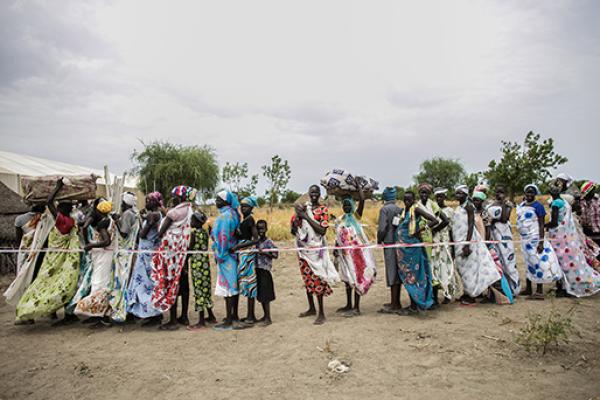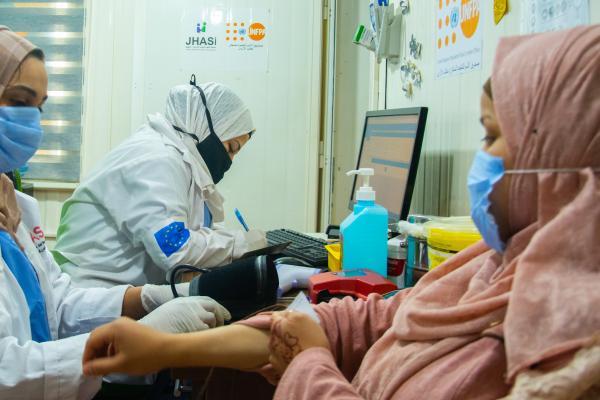Haiti is struggling with an unprecedented level of violence. Armed groups control more than 85% of the capital, Port-Au-Prince, and are expanding their presence in the Artibonite and Centre departments, increasing catastrophic levels of humanitarian needs.
Over 1 million people had to flee their homes to survive, often more than once, becoming internally displaced (according to the International Organization for Migration). That is 1 in every 10 Haitians, with half of the displaced being children.
As they shelter in host communities and makeshift sites (mainly in schools, churches or public squares), they face serious humanitarian concerns.
‘Life in Port-au-Prince is a daily nightmare. Gangs control my neighbourhood, spreading terror’, Adelie, an elderly resident of Port-au-Prince, told IOM. ‘I had to flee to save my life and leave everything behind’, she added, now staying with other displaced families who occupy a public-school playground.
In February 2024, gangs united under a coalition known as Viv Ansanm. They have since launched attacks on state institutions, hospitals, schools, prisons, private businesses and residences across the capital and beyond.
‘Haiti remains a neglected, protracted, complex crisis. We are facing an unprecedented level of violence and a lack of political interest from the international community’, says Mohamed Mechmache, who heads the EU’s humanitarian aid office in Haiti.
‘A key part of our job is to raise more attention and resources for this crisis, while recognising, however, that humanitarian aid can no longer be a simple palliative for political inaction’, he added from Port-au-Prince.
According to UN figures, 2,660 people were killed in Haiti between December 2024 and February 2025. The UN has noted the inability of the police to contain the expansion of gangs, raising fears of an imminent collapse of the state’s presence in Port-au-Prince.
As a result, 5.7 million people (nearly half the population) are currently facing acute food insecurity. About 277,000 children aged between six months and under five years, as well as pregnant and nursing women are at risk of acute malnutrition, including over 125,000 severe cases.
EU partner IOM is delivering crucial assistance to displaced populations, such as cash assistance, rental aid and medical or psychosocial support. It also provides clean water and sanitation services, which are both key in a country where cholera remains prevalent.
At least 60% of the country’s health facilities have stopped functioning or operate below their normal capacity, with only one public hospital still open in the capital Port-au-Prince.
This is why another EU partner, the medical NGO ALIMA is bringing vital healthcare to those in need. Its mobile clinics reach 17 displaced people’s sites, providing quality primary care, maternal and child health services, and mental health support for free.
ALIMA is also reopening key healthcare facilities in Cité Soleil, offering reproductive health services and support for survivors of sexual violence in this dangerous neighbourhood. The project also tackles severe acute malnutrition in children and ensures emergency response readiness.
‘Maternal health care services are not only a fundamental right but an essential pillar for building resilient communities’, says Virginie Vialas, who heads ALIMA in Port-au-Prince.
‘In Haiti, humanitarian challenges are compounded by a medical emergency and we are protecting the lives of mothers and newborns every day’, she explains.
‘Together, we turn hope into action.’
In 2025, the EU has allocated nearly €20 million to address the needs of the most vulnerable population.
With €538 million allocated since 1994, Haiti is the main recipient of EU humanitarian aid in Latin America and the Caribbean.







